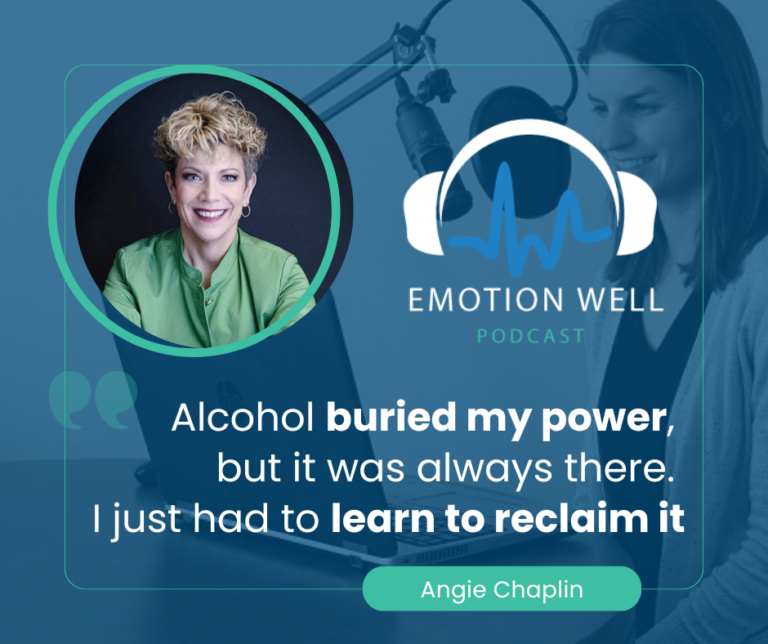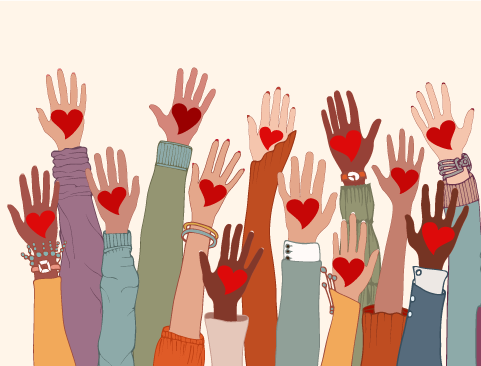Alcohol is so ingrained in our culture and social norms that we hardly notice how prevalent it is—until we start paying attention. From happy hours with coworkers to wine-and-paint nights, from toasting celebrations to grabbing a drink after a long day, alcohol is everywhere. Its constant presence can make it seem harmless, but just because something is widely accepted doesn’t mean it’s safe.
Think of how smoking cigarettes and not wearing seatbelts used to be the norm, despite the serious health risks.
Fun Fact: Cigarettes used to be physician-approved and seat belts were considered a health risk!
Cigarettes were promoted as healthy for nerves and digestion- some brands were even physician-approved! And if that seems surprising, consider this: seatbelts were once controversial too. People believed they could cause internal injuries or be dangerous in case of a fire or flood, and some even thought it was safer to be thrown from a vehicle during an accident.
The truth is, that any amount of alcohol carries health risks, and the more you drink, the higher those risks become. So, what’s the safest amount to drink? The answer is simple: none.
But don’t worry—you don’t have to commit to complete sobriety or pour all your drinks down the drain (unless you want to, and if so, more power to you!). While it’s impossible to live a risk-free life, it’s easy to overlook the dangers of alcohol because it’s so normalized in our culture.
So, let’s dive into the surprising health implications of drinking and explore what moderation really means so that you can make informed choices about your alcohol consumption.
Debunking alcohol myths
You’ve probably heard that moderate amounts of alcohol are like a health elixir – it’s good for your heart and longevity.
But the reality is there is no health reason to start drinking because there is no amount of alcohol consumption that is ‘safe’. A clean diet and regular exercise are far more effective—and thoroughly researched—ways to improve your well-being. It’s a surprising and sobering fact, especially since the media, culture, and some past scientific research have normalized drinking, downplayed the risks, and published misleading evidence
Where did the alcohol-is-healthy myth originate?
The myth that alcohol is good for your health began in the 1980s with research into what was called the French Paradox.
Researchers observed lower rates of heart disease among French men and linked it to their daily red wine consumption. The idea that moderate drinking was beneficial quickly took off. Red wine, with its high concentration of resveratrol—a protective antioxidant found in foods like blueberries and cranberries—was quickly branded as “healthy.”
It seemed logical, right? But let’s take a closer look.
Faulty studies, flawed results
Conflict of Interest: Much of the research promoting the health benefits of alcohol has been funded by the alcohol industry itself.
Flawed Study Design: JAMA Network Open’s 2023 massive review of 107 observational studies involving over 4.8 million people found significant flaws, like failure to consider factors like age, sex, economic status, or lifestyle habits like exercise and diet in health outcomes. This caused the results to be biased and misleading.
Why study design matters: misleading results
For example, if a study shows that people who drink moderately are healthier, but it doesn’t consider that these drinkers are also more likely to exercise, eat well, or have better access to healthcare, then it might seem like alcohol is the reason for their good health when it’s actually their healthy lifestyle overall.
Additionally, many studies grouped non-drinkers together, but this often includes people who stopped drinking because of health issues. So, when comparing them to moderate drinkers, it might falsely appear that moderate drinkers are healthier, when in reality, the non-drinkers are less healthy due to pre-existing conditions or damage from prior drinking habits.
What does it mean to drink alcohol in moderation?
Drinking in moderation is the best way to manage the health risks of alcohol while still enjoying the occasional beverage. It’s widely cited that moderation means 1 drink or less per day for women and 2 drinks or less per day for men. So, what constitutes a ‘drink’?
Drink =
- 12 oz of beer with 5% alcohol by volume (ABV)
- glass of wine (5oz)
- shot of distilled spirit (1.5 oz)
But how you drink matters more than what you drink. It’s lower risk to drink moderately more frequently than large amounts on fewer occasions.
So no, you can’t stockpile your weekly alcohol servings and consume them all at one time. The weekly total may be the same, but the impact to your health isn’t.
Long-term damage from heavy alcohol use isn’t limited to people with alcohol use disorder. Frequent binge drinkers can also develop health problems.
What is binge drinking?
The Substance Abuse and Mental Health Services Administration (SAMHSA), defines binge drinking as 5 or more alcoholic drinks for males or 4 or more alcoholic drinks for females on the same occasion (i.e., at the same time or within a couple of hours of each other) on at least 1 day in the past month.
Use this tool from the CDC to check your drinking. If you want to drink less, you can build a personalized plan that you can print or save!
What’s the risk of drinking too much alcohol?
Recognizing that there’s no safe amount of alcohol to consume is a hard truth to swallow. Because of alcohol’s components – large amounts of water and its fat-soluble nature- it can easily penetrate cells and tissues, which enables it to affect nearly every organ in the body, particularly the brain.
1. Increased risk of cancer: The International Agency for Research on Cancer has classified alcohol as a Group 1 carcinogen, linking it to various cancers, including breast, esophageal, mouth, pharynx, colorectal, stomach, and liver cancer.
2. Alcohol-Related Brain Damage (ARAD): Alcohol crosses the blood-brain barrier and can damage areas responsible for memory and cognitive functions. Over time, this leads to short-term memory loss, brain cell death, and can severely impair learning, attention, decision-making, and self-control.
3. Behavioral changes: Chronic drinking alters brain circuits, making individuals more prone to habitual and impulsive behaviors, even when not drinking.
4. Cardiovascular issues: Alcohol contributes to high blood pressure, stroke, heart disease, and atrial fibrillation—a serious heart condition. Even moderate drinking can elevate these risks.
5. Poor mental health: Regular alcohol consumption raises cortisol levels, a stress hormone, which can lead to increased feelings of stress, anxiety, and depression when not drinking.
6. Digestive problems: Alcohol disrupts your gut microbiome, causing inflammation and a condition known as “leaky gut,” where harmful bacteria enter the bloodstream. This disruption can intensify the craving for alcohol, creating a cycle that’s tough to break.
7. Liver disease: Chronic binge drinking can lead to alcoholic hepatitis (liver inflammation) and cirrhosis (scarring of the liver), both of which are serious and potentially life-threatening conditions.
8. Fatal accidents: Alcohol is involved in about 1 in 3 fatal traffic accidents in the U.S. and 40% of those incarcerated for violent offences were under the influence of alcohol at the time of the crime.
9. Sleep disruption: Alcohol interferes with the deep stages of sleep, leaving you feeling tired. This lack of quality sleep can contribute to a range of problems, irritability, fatigue, difficulty concentrating, mood swings, reduced cognitive function, and increased risk of health issues over time.
When it comes to alcohol, abstinence is the healthiest choice. While no amount of alcohol is entirely risk-free, you can still choose to enjoy a drink, whether as a social tool, cultural tradition, or simply for fun.
Drinking doesn’t have to be an all-or-nothing decision—it’s a continuum. Knowing where you stand on that continuum and understanding the risks will help you make informed decisions about which ones you’re willing to take.
Interested in learning more about alcohol’s affects on your health, life, and relationships? Check out the resources below!
How alcohol affects your health
In this episode, Dr. Andrew Huberman explains how alcohol affects the brain and body, even at low levels of consumption. He discusses how alcohol acts as a poison, leading to cellular stress, changes in brain function, and increased risks of inflammation, neurodegeneration, and cancer.
Huberman also covers genetic factors influencing alcoholism and offers tips for reducing hangovers. This episode is essential for understanding the real impact of alcohol on your health.
From alcohol dependency to sobriety: the approach that changed Angie’s life
We sat down with Angie Chaplin as she shared her raw and powerful journey to sobriety. In this candid conversation, Angie reveals her struggles with career shifts, grief, and relationship woes that led her to lean on alcohol for a decade
After a life-changing wake-up call and attempts to heal through conventional methods, Angie found her lifeline: identifying her core values. Don’t miss this powerful reminder that true liberation lies within ourselves.
Finding strength through support: for those affected by another’s drinking
Navigating the challenges of a loved one’s drinking can feel isolating, overwhelming, and endless.
In this blog, someone shares their first-hand experience of finding support through Al-Anon, a group designed to help those affected by another’s alcoholism. From the initial hesitation to the realization that Al-Anon was more about helping themselves than fixing their loved one, this story highlights the power of community and the importance of self-care.



